-
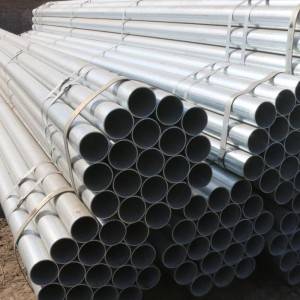
Super Purchasing for A53 A333 A106 St45 Sch40 DN15 Q235B Q355b API 5L Carbon Black Thick Wall Large Diameter Cold Drawn Spiral Seamless/Galvanized/Welded/Precision Steel Tube/Pipe.
Galvanized seamless steel pipe is hot-dip galvanized, so the amount of zinc plating is very high, the average thickness of zinc coating is more than 65 microns, and its corrosion resistance is much different than that of hot-dip galvanized pipe. The regular galvanized pipe manufacturer can use cold galvanized pipe as water and gas pipe. The zinc coating of cold galvanized steel pipe is electroplated layer, and the zinc layer is separated from the steel pipe substrate. The zinc layer is thin and easy to fall off because it is attached to the steel pipe substrate. Therefore, its corrosion resistance is poor. It is forbidden to use cold galvanized steel pipe as water supply steel pipe in new residential buildings.
-
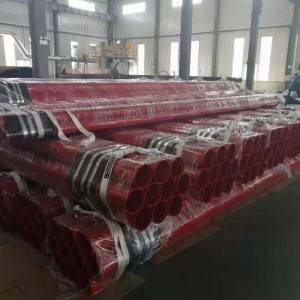
Best Price on Plastic Coated Steel Pipe Pipe for Lean Manufacturing System
The inner and outer plastic-coated steel pipes are made by melting a layer of polyethylene (PE) resin, ethylene-acrylic acid copolymer (EAA), epoxy (EP) powder, and non-toxic polycarbonate with a thickness of 0.5 to 1.0mm on the inner wall of the steel pipe. The steel-plastic composite pipe composed of organic substances such as propylene (PP) or non-toxic polyvinyl chloride (PVC) not only has the advantages of high strength, easy connection, and resistance to water flow, but also overcomes the corrosion of steel pipes when exposed to water. Pollution, scaling, low strength of plastic pipes, poor fire-fighting performance and other shortcomings, the design life can be up to 50 years. The main disadvantage is that it must not be bent during installation. During thermal processing and electric welding cutting, the cutting surface should be painted with the non-toxic normal temperature curing glue provided by the manufacturer to repair the damaged part.
-
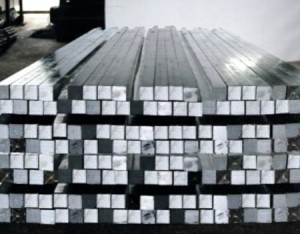
China Factory for Manufacturer Price Seamless ERW Stainless Carbon Alloy Galvanized Square Round Carbon Alloy Steel Tubes and Pipes
Square steel: solid, bar. It is different from square tube, hollow and belongs to pipe. Steel: it is a material with various shapes, sizes and properties required by ingot, billet or steel through pressure processing. Steel is an essential material for national construction and the realization of the four modernizations. It is widely used and has a wide variety. According to the different section shapes, steel is generally divided into four categories: profile, plate, pipe and metal products. In order to facilitate the organization of steel production, order supply and business management, it is also divided into heavy rail, light rail, large section steel, medium section steel, small section steel Steel cold-formed section steel, high-quality section steel, wire rod, medium and thick steel plate, sheet steel, electrical silicon steel sheet, strip steel, seamless steel pipe, welded steel pipe, metal products, etc.
-
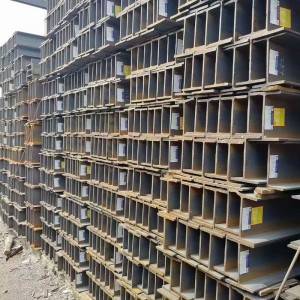
Short Lead Time for ASTM Carbon Steel Square High Quality Cheap Price for Construction
We stick to our enterprise spirit of “Quality, Performance, Innovation and Integrity”. We purpose to create a lot more price for our prospects with our rich resources, innovative machinery, experienced workers and great products and services for Short Lead Time for ASTM Carbon Steel Square High Quality Cheap Price for Construction, Constantly for the majority of business enterprise users and traders to supply ideal top quality products and great service. Warmly welcome to join us,... -
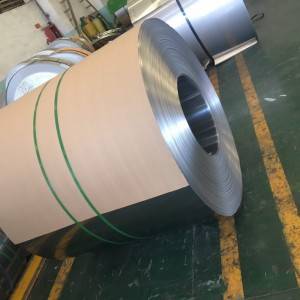
Factory supplied Price of A36 and A35 Carbon Steel Coils A106 Q195 Low Hot Rolled Black Q235 S355 DC01 Low Carbon Steel Q345 S45 Ms Steel Coil Structural Carbon Steel Coil
Used in home appliances construction, machinery manufacturing, container manufacturing, shipbuilding, bridges, etc.
-
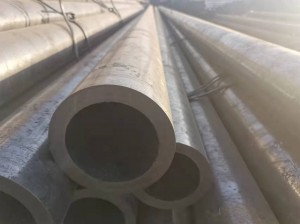
2019 Latest Design Faith 20/30/50/80W/100W 3D Color CO2 UV Fiber Production Line Galvo Fiber Laser Printer Marking CNC Engraving Machine for PVC PE Pipe
Production specification:
Outer diameter of steel pipe 20-426
Steel pipe wall thickness of 20-426
20# seamless steel pipe is made of 20# steel, with slightly higher strength than 15#, rarely quenched and no tempering brittleness. Cold deformation plasticity is high, generally for bending, calendering, bending and hammer arch processing, welding performance of arc welding and contact welding is good, gas welding thickness is small, the shape of strict requirements or complex shape of the workpiece is easy to crack. Machinability cold drawing or normalizing state is better than annealing state, generally used to manufacture less stress and high toughness requirements of the workpiece.
The material of 20# seamless steel pipe is: high quality carbon structural steel
Brand number: 20#
Standard: GB8162-2018
GB/T8163-2018
GB3087-2008
GB9948-2013
GB5310-2017
-
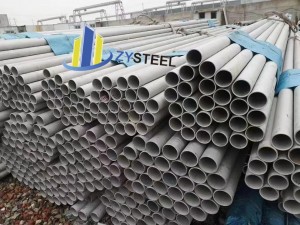
Cheapest Price Capillary Stainless Steel Pipe with 201 304 316 309S 310 Stainless Steel Seamless Round Welded Pipe
Yield strength (N/mm2) ≥ 205
Tensile strength ≥ 520
Elongation (%) ≥ 40
Hardness HB ≤ 187 HRB ≤ 90 HV ≤ 200
Density 7.93 g · cm-3
Specific heat c (20 ℃) 0.502 J · (g · C) – 1
Thermal conductivity λ/ W (m · ℃) – 1 (at the following temperature/℃)
20 100 500 12.1 16.3 21.4
Coefficient of linear expansion α/ (10-6/℃) (between the following temperatures/℃)
20~10020~200 20~300 20~400
16.0 16.8 17.5 18.1
Resistivity 0.73 Ω · mm2 · m-1
Melting point 1398~1420 ℃
As stainless and heat-resistant steel, 304 steel pipe is the most widely used equipment for food, general chemical equipment and atomic energy industry.
304 steel pipe is a kind of universal stainless steel pipe, which is widely used to make equipment and parts requiring good comprehensive performance (corrosion resistance and formability).
304 steel pipe has excellent rust and corrosion resistance and good intergranular corrosion resistance.
304 steel pipe material has strong corrosion resistance in nitric acid below boiling temperature with concentration ≤ 65%. It also has good corrosion resistance to alkali solution and most organic and inorganic acids. A kind of high alloy steel that can resist corrosion in the air or in the chemical corrosion medium. Stainless steel is a kind of steel that has beautiful surface and good corrosion resistance. It does not need to undergo surface treatment such as color plating, but gives full play to the inherent surface properties of stainless steel. It is used in many aspects of steel, usually called stainless steel. High alloy steels such as 13 chromium steel and 18-8 chromium-nickel steel are representative of properties.
As stainless and heat-resistant steel, 304 steel pipe is the most widely used equipment for food, general chemical equipment and atomic energy industry.
-

Factory Cheap Good Quality Cold Rolled Hot Rolled Low Carbon Steel Plate for Multi Purpose (zinc coating 180g)
With the development of science, Technology and Industry, higher requirements are put forward for materials, such as higher strength, resistance to high temperature, high pressure, low temperature, corrosion resistance, wear resistance and other special physical and chemical properties, carbon Steel can not completely meet the requirements.
-
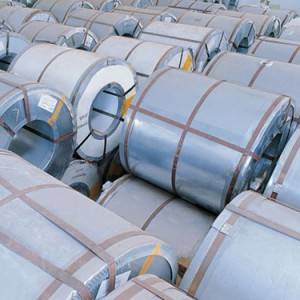
One of Hottest for A36 Hot Rolled Cold Rolled Carbon Steel Ss400 Mild PPGI PPGL Ms CRC HRC Galvanized Steel Coil Ss 201/304/310 Stainless Steel Coil Aluminum Alloy Coil 15%off
Innovation, excellent and reliability are the core values of our company. These principles today much more than ever form the basis of our success as an internationally active mid-size business for Online Exporter China 304 316 En/DIN 1.4401 Hot Rolled Stainless Steel Coil Duplex 904L 2205 2507, Honesty is our principle, professional operation is our work, service is our goal, and customers’ satisfaction is our future!
-
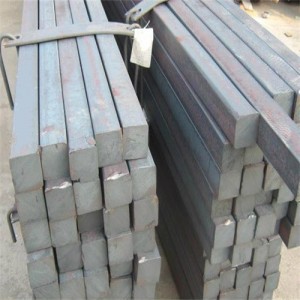
IOS Certificate Round Steel Pipe DIN En10217-2005 BS En10217 BS En10219 BS En10025 Hollow Section Steel Pipe Welded Steel Square
Square steel: solid, bar. It is different from square tube, hollow and belongs to pipe. Steel: it is a material with various shapes, sizes and properties required by ingot, billet or steel through pressure processing. Steel is an essential material for national construction and the realization of the four modernizations. It is widely used and has a wide variety. According to the different section shapes, steel is generally divided into four categories: profile, plate, pipe and metal products. In order to facilitate the organization of steel production, order supply and business management, it is also divided into heavy rail, light rail, large section steel, medium section steel, small section steel Steel cold-formed section steel, high-quality section steel, wire rod, medium and thick steel plate, sheet steel, electrical silicon steel sheet, strip steel, seamless steel pipe, welded steel pipe, metal products, etc.
-

Hot sale Factory Round/ Square/ Hexagonal/Flat/Angle China Manufacture A36 A106 St37 St35 Ss460 AISI 1018 1020 1025 1030 1035 1040 1045 1050 1055 1060 4130 4140 Carbon Steel
Square steel: solid, bar. It is different from square tube, hollow and belongs to pipe. Steel: it is a material with various shapes, sizes and properties required by ingot, billet or steel through pressure processing. Steel is an essential material for national construction and the realization of the four modernizations. It is widely used and has a wide variety. According to the different section shapes, steel is generally divided into four categories: profile, plate, pipe and metal products. In order to facilitate the organization of steel production, order supply and business management, it is also divided into heavy rail, light rail, large section steel, medium section steel, small section steel Steel cold-formed section steel, high-quality section steel, wire rod, medium and thick steel plate, sheet steel, electrical silicon steel sheet, strip steel, seamless steel pipe, welded steel pipe, metal products, etc.
-

2019 Latest Design Stainless/Galvanized/Aliminum/Hot Cold Rolled/Carbon/Inconel/Alloy/Prepainted/Color Coated/Zinc Coated/Galvalume/Strip/Aluminium/Dx51d/304/Gi/Roofing Steel
The strip steel is generally supplied in coils, which has the advantages of high dimensional accuracy, good surface quality, easy processing, material saving and so on. The same as the steel plate, the strip steel is divided into ordinary strip steel and high-quality strip steel according to the material used; According to the processing method, it is divided into hot-rolled strip and cold-rolled strip.